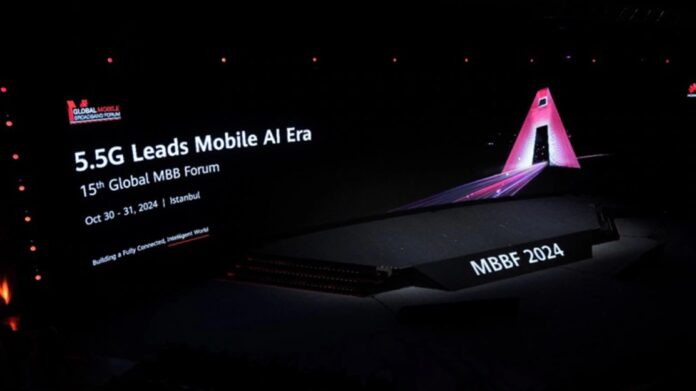Huawei noted that the new solutions aim to boost the requirements of the so-called mobile artificial intelligence (AI) era
Chinese vendor Huawei launched a new set of 5G-Advanced (5G-A) solutions during the company’s Global Mobile Broadband Forum 2024 (MBBF 2024), which took place last week in Istanbul, Turkey.
The new solutions, announced by Cao Ming, vice president of Huawei and President of Huawei’s Wireless Solution, aims to boost the requirements of the so-called mobile artificial intelligence (AI) era.
“Mobile AI is changing our lives. The arising new connections and services pose increasingly higher requirements on networks. Huawei’s 5G-A 10 solutions build multidimensional ultimate network capabilities through the full-series Advanced Radio, enable full-domain site digitalization through Ambient Site and achieve L4 network autonomy through the Agent-based digital engineers team. These solutions will help operators meet the ever-diversifying demand for services in the Mobile AI era,” Cao said.
The executive noted that the new 5G-A solutions will deepen the convergence of 5.5G and AI through ‘Networks for AI’ and ‘AI for Networks’. ‘Networks for AI’ will enable networks to possess the sufficient capabilities that are required to address differentiated service requirements and improve both network performance and user experiences. ‘AI for Networks’ will equip networks with L4 autonomy through digital sites and RAN Agents. Operators can use these solutions in a wide range of scenarios to sustain their leading positions.
Some of the new solutions announced by the vendor include:
-Sub-1 GHz Massive MIMO, which according to Huawei provides an innovative solution to many technical challenges to meet the general deployment requirements of site engineering, bringing Massive MIMO to low bands. While providing extensive coverage, low-band Massive MIMO improves downlink, uplink and low-latency experiences, Huawei said.
– Blade AAU X, a product that uses a single antenna to support Massive MIMO deployment across all sub-6 GHz bands. Huawei explained that this product can be deployed on a single pole, and requires 50% less site space and 70% lower OPEX.
Huawei also launched LampSite, which according to the company introduces Passive IoT (P-IoT) for the first time to upgrade digital intelligence indoors. LampSite X supports both indoor 10 Gbps and P-IoT access.
Another new 5G-A solution launched by Huawei is the Agent-based digital engineers team, which enables higher-level network autonomy. Based on the intelligent RAN Agent, the Agent-based digital engineers team includes four digital experts that perform unattended maintenance, real-time network optimization, 24/7 energy saving and accurate service provisioning evaluation.
Also, during Huawei’s Ultra-Broadband Forum (UBBF 2024), which also took place in Istanbul last week, David Wang, Huawei’s Executive Director of the Board and Chairman of the ICT Infrastructure Managing Board, shared his latest insights into the AI industry.
Wang noted that the widespread commercial use of AI is accelerating, and new applications for personal use, enterprise efficiency and smart homes are disrupting multiple markets. It is also driving communications network upgrades, in terms of capacity, latency and architecture, he said.
“Huawei has continued innovating by focusing on two areas: UBB for AI and AI for UBB. The innovation we are doing under UBB for AI is based on ultra-large bandwidth, deterministic low latency, and network architecture. The network capability improvements we’ve achieved support higher quality AI development which will help carriers achieve business growth,” said Wang.
“This innovation also focuses on AI for UBB. We are applying AI to networks to improve network experience, to speed up service provisioning, and to streamline network O&M. This helps carriers build highly autonomous networks,” he added.
Wang called for the entire UBB industry to actively embrace the intelligent era by pursuing innovation in UBB 5.5G network technologies for long-term competitiveness

